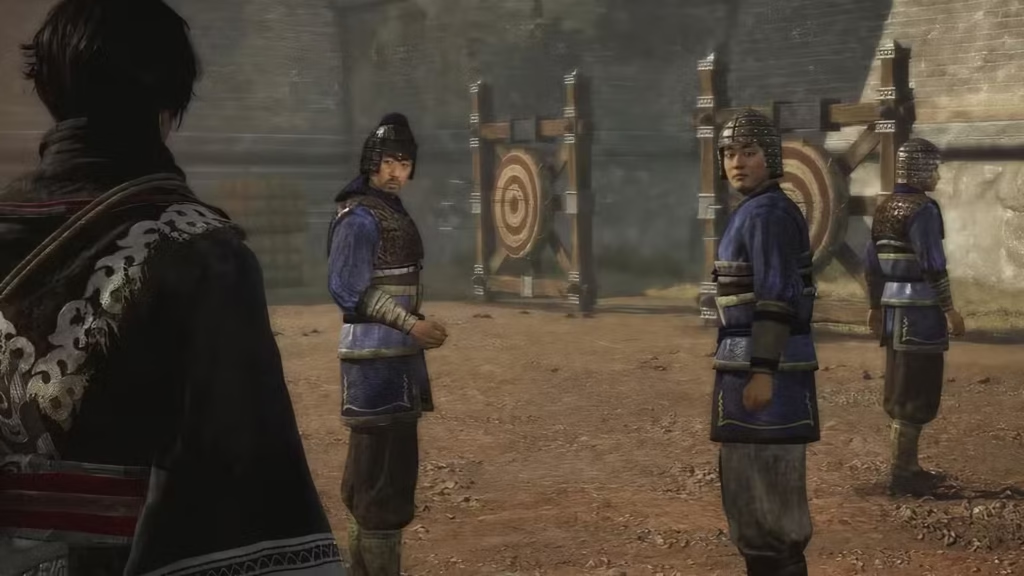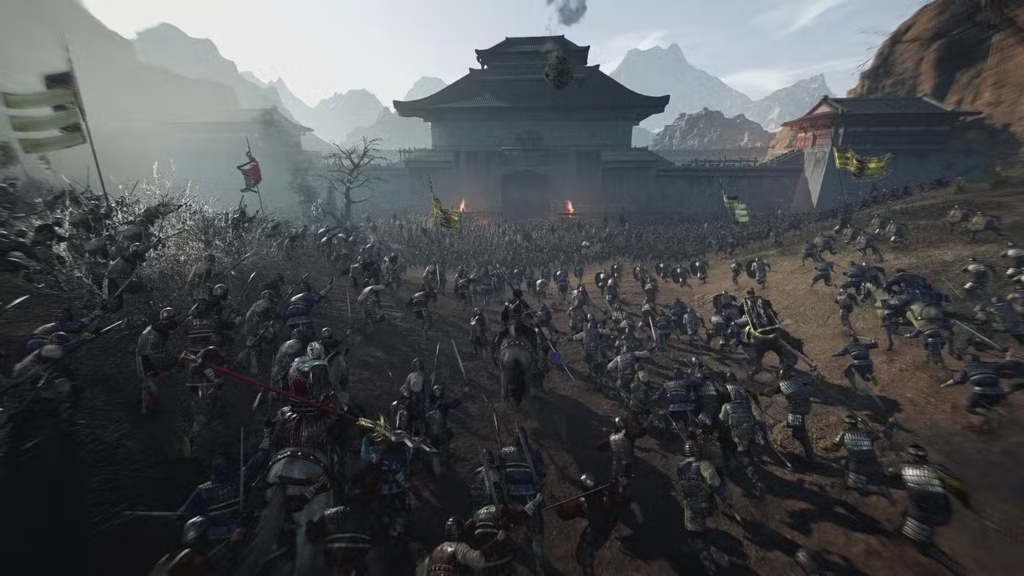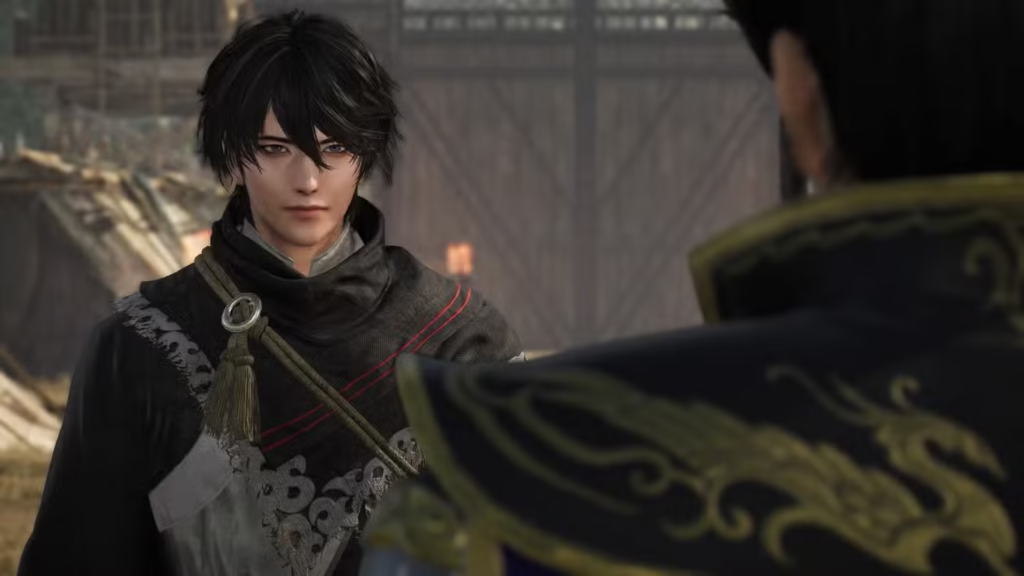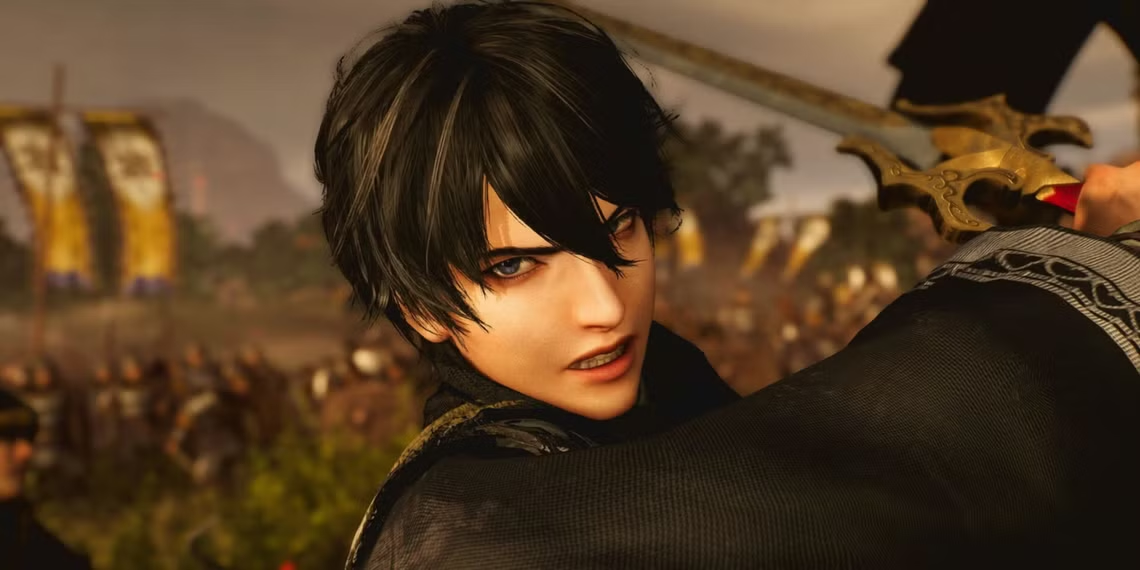Dynasty Warriors: Origins marks the tenth installment in the mainline Warriors series, but fans understand that this is just scratching the surface. The franchise boasts numerous spin-offs, including titles inspired by popular series like Zelda and Persona, along with the Dynasty Warriors Empires games. This ever-expanding musou genre has evolved significantly over the years, making it quite daunting for newcomers. While Origins may not be the most innovative or packed with features compared to other Warriors titles, it could very well be the finest one yet.
After Dynasty Warriors 9 tried to transform the series into an open-world RPG, developer Omega Force faced a choice: should they stick with this new direction or revert to a more traditional Warriors experience that highlights the series’ core strengths? Dynasty Warriors: Origins represents a blend of these two approaches. It incorporates several action-RPG features from recent titles but is much more straightforward than what long-time fans might anticipate. There’s no multiplayer or additional game modes, just one playable character (in a technical sense), and elements like crafting and resource management have largely been set aside.
This is why Dynasty Warriors Origins might receive a mixed response. On one side, it truly captures the essence of the musou genre, combining exciting hack-and-slash gameplay with strategic elements. On the flip side, some players might find it a bit repetitive if they’re looking for more variety. However, for newcomers to the series or fans who are open to different experiences, Dynasty Warriors: Origins could easily be one of the standout games of January.
Dynasty Warriors: Origins Is an Almost Perfect Action-Strategy Concoction

Dynasty Warriors and the musou genre as a whole frequently face criticism for being overly simplistic and lacking excitement. Although Origins may not be the most complex game out there, it surprisingly addresses these concerns with a level of depth and versatility that is rarely found in the series.
While it may oversimplify things, the gameplay of Dynasty Warriors: Origins sits between the traditional Dynasty Warriors and the Empires series. Players experience the exhilarating 1 vs. 1,000 action reminiscent of earlier titles, but strategy becomes vital, particularly at tougher difficulty levels. Managing enemy movements is key, as intercepting troops and seizing bases can significantly alter the course of battle. Using these tactics to turn a losing situation into a win delivers a thrill that’s hard to find in other action games.
The game’s morale system plays a crucial role in shaping the outcome of major battles. By capturing bases, taking down enemy officers, and implementing effective strategies, players can boost their allies’ morale, which enhances their performance on the battlefield. On the flip side, actions from the enemy, such as defeating allied officers or recapturing bases, can diminish morale. This creates a thrilling atmosphere in battles and adds depth to the player’s strategic choices. For example, if morale is low and the player is close to achieving the main objective, they face a choice: stick to the plan and risk losing a key character or take on side objectives to improve morale and lessen the battle’s intensity. In tougher encounters, especially when the survival of multiple allies is at stake, the morale system keeps the gameplay engaging, complex, and adaptable.
Note:- For those who like action-RPGs but have been turned off by musuo games in the past, I would recommend playing Dynasty Warriors: Origins’ on Hero difficulty, as this provides the best balance of intensity and strategy.
The broader strategic elements are supported by the exceptional combat mechanics in Origins, which may be the finest in the series. Players can smoothly navigate the battlefield, executing powerful strikes, perfect dodges, and parries to accumulate Bravery. This resource can then be spent on potent Battle Arts, reducing enemy Fortitude and creating chances for powerful follow-up moves. The combat shares some similarities with Sekiro, rewarding players who master the parry system, although it’s not essential for achieving success. In terms of pure action, Dynasty Warriors: Origins represents a significant improvement over Dynasty Warriors 9, making it a much more enjoyable experience.
The technical accomplishments of the game truly deserve special recognition. The concept of one soldier facing off against thousands has never been executed so effectively. Origins takes full advantage of modern technology to craft expansive battlefields filled with waves of foot soldiers, resembling fields of grass ready to be mowed down by the player. Galloping into these masses on horseback, amidst the rallying cries of your comrades, is incredibly exhilarating and never loses its charm. While Dynasty Warriors Origins may not be the most visually impressive title, it exemplifies how a developer can harness technological advancements to realize a specific vision rather than merely enhancing aesthetics.
When it comes to pure hacking and slashing, Dynasty Warriors: Origins is a massive leap forward from Dynasty Warriors 9.
A Brief Word On Dynasty Warriors: Origins’ RPG Elements and Progression

In contrast to earlier titles in the series, the campaign in Dynasty Warriors: Origins focuses on a single protagonist. Players can enhance this character by leveling up ten collectible weapons, each requiring a certain number of proficiency points to advance through their ranks. This system encourages players to try out various weapons and playstyles, making the absence of multiple characters more acceptable. Additionally, as players progress through weapon ranks, they unlock new combos, special abilities, and Battle Arts, ensuring that each weapon remains engaging and distinct.
While there are additional playable characters in Dynasty Warriors: Origins, they mainly serve as temporary enhancements. In specific battles, players can team up with iconic figures like Guan Yu or Xiahou Dun. Once the musuo gauge is filled, players can take control of these characters for a limited time. Although these legacy characters are incredibly strong, they don’t offer a unique gameplay experience since their abilities and weapons mirror those of the player’s character, which can be a letdown.
Dynasty Warriors: Origins’ Story Has Moments of Greatness, But Is Mostly a Slog

The storytelling and overall presentation of Dynasty Warriors: Origins present a mixed experience. On one hand, it stands out as the most engaging single-player campaign the series has seen in quite some time. The game features a vast and expansive world, with a plot that allows for player choices, giving it a fresh twist compared to earlier titles. Additionally, the presentation is significantly improved over previous games in the franchise; while the cutscenes may still feel a bit rigid, they are much more vibrant and dynamic than those in Dynasty Warriors 9, which often looked like action figures in a display. The dialogue and voice acting are generally strong, and the pre-rendered cutscenes can be quite breathtaking at moments.
If expository dialogue isn’t your thing, you might find Dynasty Warriors: Origins to be quite a slog. Similar to earlier titles, players can build relationships with NPCs, but unlike a game like Metaphor Refantazio, these connections lack compelling side stories. Interacting with the numerous NPCs mainly involves casual conversation. They share their lives and challenges, and while some of these interactions can be charming or engaging, there’s a noticeable absence of emotional depth or tension, making it tough to remain engaged for extended periods.
If you’re aiming to fully complete Dynasty Warriors: Origins, get ready for a series of tedious and unimportant meetings. If you already know about the Three Kingdoms Era from history, literature, or earlier Dynasty Warriors titles, you might find that the story here doesn’t add much to your understanding. On the other hand, if you’re new to this part of Chinese history, you might struggle to find the story’s charm, as its emotional core is there but quite hard to grasp.
The story also features a quiet protagonist with amnesia, who lacks a bit of charm, feeling almost as engaging as a sack of flour. A significant part of the plot focuses on him rediscovering his history as a Guardian of Peace. I found some of the twists and turns quite surprising, but I think a more defined character, perhaps with a distinct voice, could have enhanced this part of the narrative.
Dynasty Warriors: Origins has its shortcomings, primarily due to a rather unexciting storyline and the absence of extra playable characters. However, it stands out as the most refined, satisfying, and technically advanced installment in the series to date. Fans of the franchise will find it an easy choice, especially if they’re willing to embrace fresh concepts like the parry system and a unique single protagonist. For newcomers to the Dynasty Warriors universe, this game is definitely worth trying—you might discover what everyone has been raving about!
Dynasty Warriors: Origins will release on PlayStation 5, Xbox Series X|S, and PC on December 17, 2025. Game Rant was provided a PS5 code for this review.

